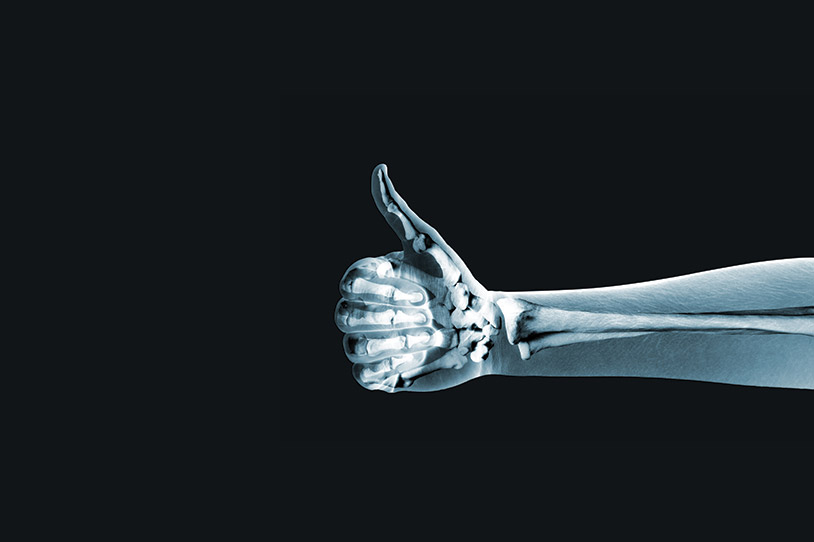Advertisement
Fractured a Bone?
Support the healing process with supplements

Although bone fractures are fairly common and may seem relatively simple, they pose a significant burden on the person affected. There’s also the possibility of poor bone and tissue healing. In fact, this latter point—poor healing and complications—is not uncommon and frequently affects young people as well as the elderly.
Advertisement
Common complications
Problems arising from a bone fracture include poor bone healing with risk of subsequent fracture and loss of the affected limb’s muscle strength and mass, which is known as immobilization atrophy. Two types of natural health products may be particularly beneficial in offsetting these complications.
Advertisement
The best bone formula
It is important to use a comprehensive bone formula supplying not only calcium but also a spectrum of other vitamins and trace elements required for optimal bone health and calcium utilization.
A multitude of human trials have shown that the addition of these nutrients, including vitamin D, vitamin K, magnesium, silica, zinc, copper, and manganese, alongside calcium supplementation, results in benefits to bone mineral density. These nutrients have also been shown to reduce markers of bone turnover—which can predict bone loss—and improve bone tissue strength.
Advertisement
Creatine to the rescue
Immobilization atrophy refers to loss of muscle mass as a result of casting, lack of use, or other forms of immobilization. Loss of bone density also results from lack of use, since physical stress in the form of weight-bearing exercise is a major stimulus for bone growth and remodelling. Creatine has been shown to help offset immobilization atrophy.
One study administered 5 g of creatine or a placebo four times daily, for seven days following casting and immobilization of the arm. During immobilization, creatine supplements maintained lean tissue mass, elbow flexor strength and endurance, and elbow extensor strength and endurance better than a placebo. The researchers concluded that “short-term creatine supplementation attenuates the loss in muscle mass and strength during upper-arm immobilization in young men.”
Another study found that creatine supplements significantly improved the recovery of muscle cross-sectional area (a measure of muscle mass) and maximal knee extension power (a measure of muscle strength) following casting of the right leg for two weeks.
Based on this evidence, a comprehensive bone formula and creatine supplement ought to be considered for those recovering from bone fracture and immobilization.





